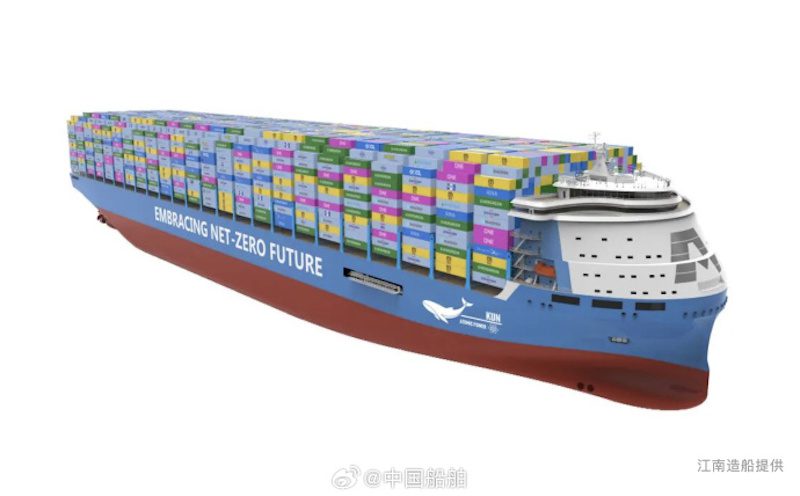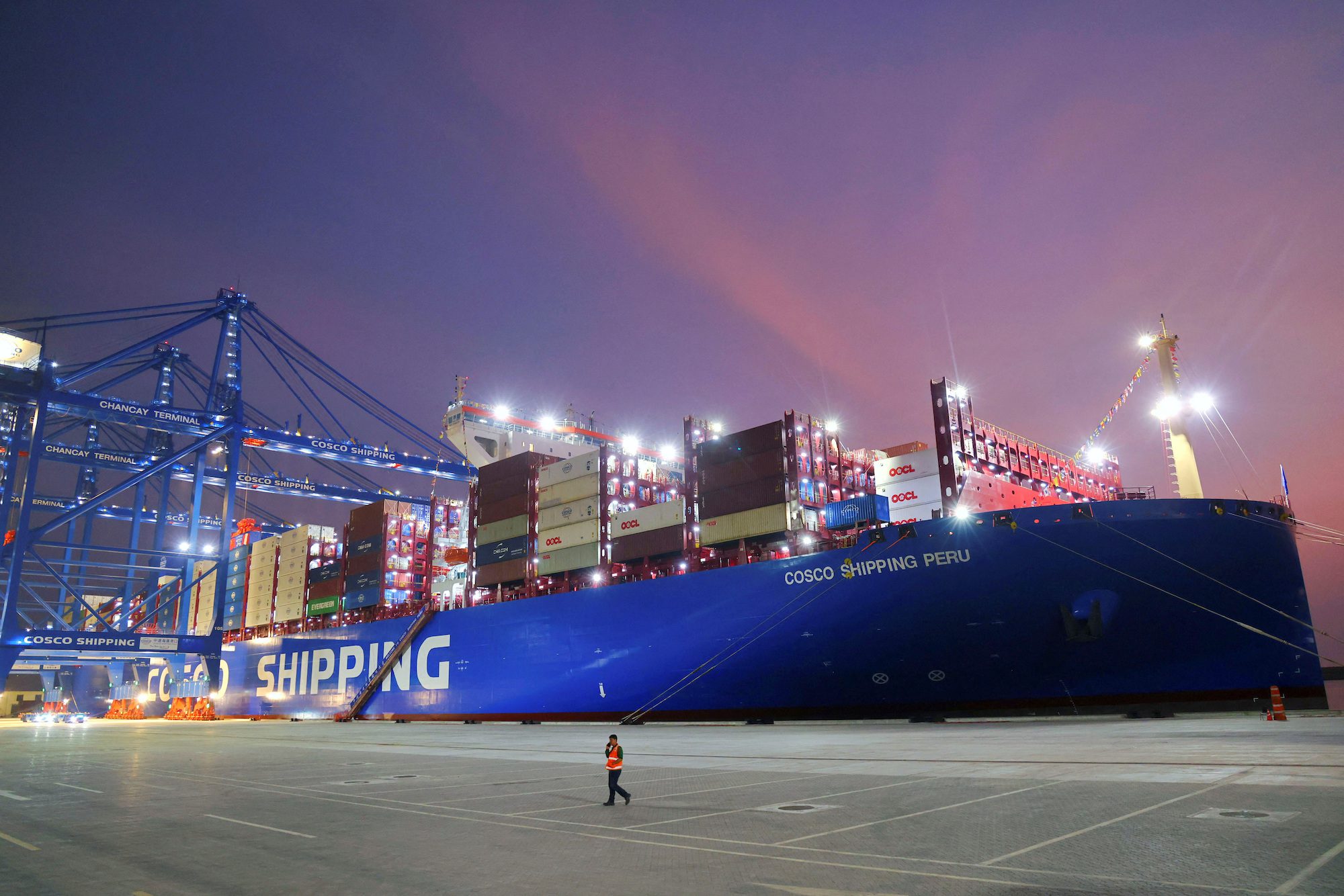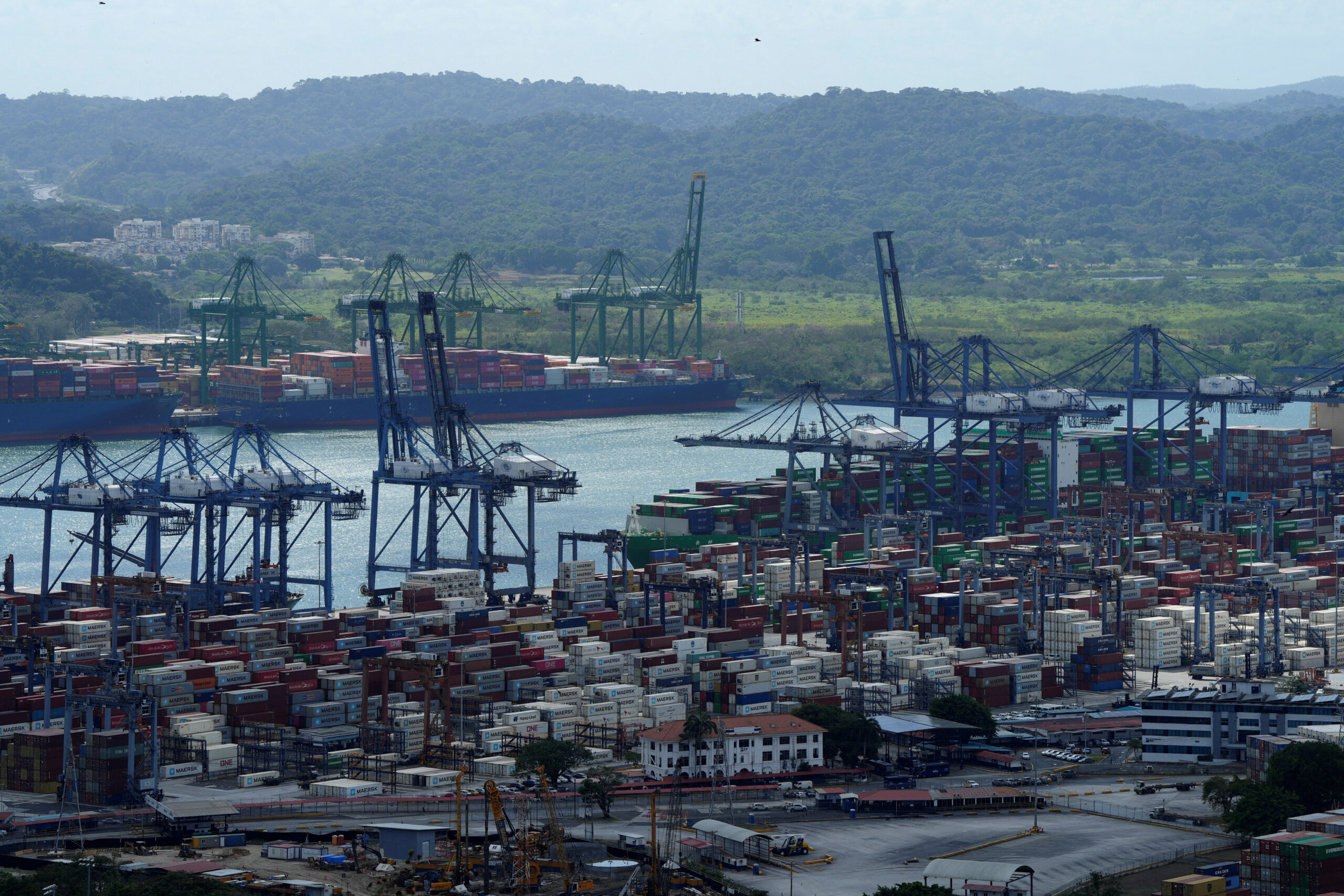China State Shipbuilding Corporation (CSSC) has unveiled plans for what could potentially become the world’s largest nuclear-powered containership.
Plans for the 24,000-TEU-class ship was unveiled Tuesday at Marintec China expo in Shanghai. The vessel will utilize a fourth-generation Molten Salt Reactor (MSR) to generate electricity.
“The ultra-large nuclear container ship is designed to truly achieve ‘zero emissions’ during the ship’s operating cycle,” CSSC said in a Weibo post.
Classification society DNV was reportedly on hand for the launch ceremony to issue an approval-in-principle to CSSC shipyard Jiangnan Shipbuilding.
“This ship type has high safety, the reactor operates at high temperature and low pressure, can avoid core melting in principle, and has anti-proliferation and inherent safety features,” CSSC’s Weibo post said (translated using Google Translate).
Molten Salt Reactors (MSRs) are a type of small scale modular nuclear reactors that use a liquid mixture of salts as both the fuel and the coolant. The fuel, which is dissolved in the salt, allows for better control and efficiency in the nuclear reaction, providing improved safety and potential for higher fuel utilization.
Considering that nuclear energy has been supplying zero-emission power to naval and government vessels for over six decades, the shipping industry is exploring the use of nuclear propulsion for commercial ships in an effort to increase efficiency and reduce the industry’s carbon footprint to meet international targets.
A study by classification society ABS released earlier this year suggested that nuclear propulsion in commercial marine vessels, specifically a 14,000 TEU containership and a Suezmax tanker, can increase cargo capacity and operational speed while eliminating CO2 emissions and the need for refueling over a 25-year lifespan.
Christopher Wiernicki, Chairman and CEO of international classification society ABS, believes nuclear propulsion is key to achieving a net-zero world.
“A net-zero world is more easily realized through nuclear propulsion, and we are putting in place the foundations for that future today. Turning this into a practical reality will require significant public sector support and ABS is well placed to bring governments and industry together,” he said upon ABS’ release of the study in July.
“Advanced or small modular reactors address many of the issues traditionally associated with nuclear for commercial maritime use, with enhanced safety and efficiency, reduced cost and waste and proliferation prevention. Nevertheless, many questions need to be answered and it is critical that industry evaluate these technologies with a laser focus on safety,” he said.
Editorial Standards · Corrections · About gCaptain

 Join The Club
Join The Club










